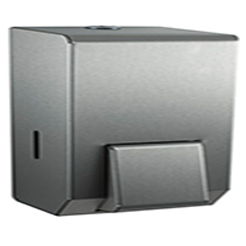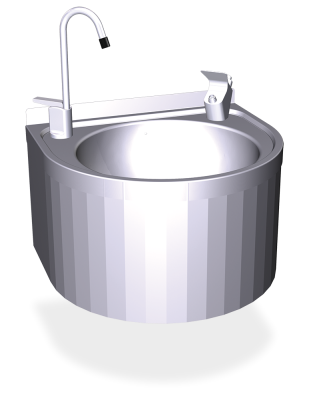Contact JKSS for Purchase Options

When to Use a Commercial Alcohol Dispenser?
A commercial alcohol gel dispenser is a key tool for maintaining hygiene and sanitation, especially in public or high-traffic areas. You might need one for various reasons, particularly if you manage a business, office, or any space where people gather. Here’s why a commercial alcohol gel dispenser would be important:
1. Promote Health and Hygiene
- Reduce Germs: Alcohol-based hand sanitizer is effective at killing many types of germs and viruses. Having a dispenser in place helps minimize the spread of pathogens, especially in areas where handwashing facilities may not be immediately accessible.
- Prevent Infections: Alcohol gel dispensers are especially useful in environments like healthcare settings, offices, schools, and public spaces where the risk of spreading bacteria and viruses (like the flu or COVID-19) is higher.
2. Convenience and Accessibility
- Easy Access to Sanitizer: Commercial dispensers make hand sanitizing quick and easy for everyone. They can be placed in strategic locations like entrances, elevators, dining areas, or restrooms to encourage regular use without requiring a trip to a sink.
- Touch-Free Options: Many commercial dispensers are now automatic or touch-free, making them even more convenient and reducing the chances of cross-contamination.
3. Improve Customer and Employee Confidence
- Reassure Visitors: In the wake of recent global health concerns, having visible hygiene measures like alcohol gel dispensers reassures customers, clients, and employees that their health and safety is being prioritized.
- Boost Employee Morale: Providing easy access to sanitizing stations helps employees feel safer and more valued, which can lead to better productivity and a more positive work environment.
4. Compliance with Health Regulations
- Meet Public Health Standards: Many industries, especially hospitality, healthcare, and food services, have specific hygiene regulations. Alcohol gel dispensers can help ensure compliance with local health and safety requirements, avoiding penalties and keeping your business in line with best practices.
- Adapt to COVID-19 or Flu Protocols: In response to the pandemic, many governments and businesses have mandated hygiene protocols, including the provision of hand sanitizers in public and commercial spaces. A dispenser helps meet these new demands.
5. Cost-Efficiency and Reduced Waste
- Controlled Dispensing: Commercial alcohol gel dispensers are designed to dispense the right amount of sanitizer, preventing overuse and reducing waste. This leads to long-term savings on hygiene supplies.
- Refillable Options: Most dispensers are refillable, making them a more sustainable and cost-effective solution than providing individual hand sanitizer bottles.
6. Enhance Business Image and Professionalism
- Clean and Organized Environment: Visible hygiene measures, like alcohol gel dispensers, contribute to a cleaner, more organized environment. This helps improve the professional image of your business, particularly in industries like retail, hospitality, and customer service.
- Customer Experience: Offering easily accessible hand sanitizer is a thoughtful gesture that customers and visitors will appreciate, improving their overall experience and perception of your brand.
7. Versatile and Scalable
- Flexible Use: Commercial dispensers come in various sizes and can be wall-mounted, free-standing, or placed on counters, making them suitable for a wide range of settings— from retail shops and offices to airports and hotels.
- High-Capacity: Commercial dispensers typically have larger capacities than household models, meaning they require less frequent refilling and can handle higher traffic areas.
8. Reduce Spread of Illness in High-Touch Environments
- Public Safety: In areas where multiple people interact with the same surfaces (door handles, payment kiosks, elevator buttons, etc.), alcohol gel dispensers provide an immediate way to disinfect hands, helping to break the chain of potential contamination.
In summary, a commercial alcohol gel dispenser is essential for maintaining hygiene, preventing the spread of illness, complying with health regulations, and improving customer and employee satisfaction. Whether you manage a business, public facility, or healthcare setting, it’s a critical tool for promoting health and safety in today’s environment.
A commercial alcohol gel dispenser is typically made from materials that are durable, easy to clean, and resistant to frequent use, as well as compatible with alcohol-based products. Here are the common materials used in its construction:
1. Plastic (ABS, Polypropylene, or Polycarbonate)
- ABS Plastic: Acrylonitrile Butadiene Styrene (ABS) is a common material for commercial dispensers because it’s lightweight, durable, and resistant to impact. ABS is also resistant to chemicals, making it ideal for alcohol gel dispensers as it won’t degrade with regular contact with sanitizing products.
- Polypropylene: This is another durable plastic often used for the inner components or nozzles of dispensers. It is resistant to alcohol and many chemicals, ensuring the dispenser lasts longer without becoming brittle or breaking down.
- Polycarbonate: Some high-end models use polycarbonate, which is extremely tough and has a clear, glossy appearance. This material can give the dispenser a more premium look while maintaining durability.
2. Stainless Steel
- Durability: Stainless steel is often used for the body or key parts of high-end or heavy-duty dispensers. It is durable, rust-resistant, and can withstand regular cleaning with harsh chemicals, including alcohol.
- Aesthetic Appeal: In many public or high-end settings, stainless steel dispensers are used for a more modern, sleek appearance. They’re often found in places like hotels, upscale restaurants, or corporate offices.
- Corrosion Resistance: Stainless steel does not corrode, even with frequent exposure to alcohol-based products, which makes it ideal for long-term use.
3. Aluminium
- Lightweight and Strong: Some dispensers use aluminum components for a balance between lightweight construction and durability. It offers corrosion resistance similar to stainless steel but at a lower cost and lighter weight.
- Sleek Appearance: Aluminum can also provide a polished, sleek finish, often used in more aesthetically conscious commercial environments.
4. Rubber or Silicone (for Seals and Gaskets)
- Sealing Components: Rubber or silicone is typically used for internal seals and gaskets to prevent leaks and ensure smooth operation. These materials are flexible and resistant to the drying effects of alcohol-based products.
- Nozzles: In some designs, silicone or rubber is used in nozzles because of their resistance to clogging and durability in dispensing thicker alcohol gels.
5. Electronic Components (for Automatic Dispensers)
- Sensors and Electronics: Automatic or touch-free dispensers contain infrared sensors or motion detectors to activate the dispenser without touch. These components are typically encased in protective materials to prevent damage from cleaning products or gel spills.
- Batteries/Power Units: Many automatic dispensers are battery-operated, though some may also be wired into electrical outlets. The power compartment is usually located in a protected section of the dispenser, often in the rear or bottom.
6. Glass (in some cases)
- Premium Dispensers: Although rare, some high-end or designer dispensers might incorporate tempered glass, either as a visible window to monitor the gel level or as part of the overall design for a sleek, modern look.
7. Metal Coatings or Finishes (for corrosion resistance)
- Powder-Coated Steel: In some dispensers, steel is powder-coated to increase its resistance to corrosion and give it a clean, smooth finish. This is especially useful for outdoor dispensers or those exposed to high moisture environments.
- Chrome Finishes: Chrome-plated metal parts can add a shiny, aesthetic appeal and are easy to clean, commonly used in upscale environments.
Summary of Materials Based on Component:
- Outer Body: ABS plastic, stainless steel, aluminum, polycarbonate, tempered glass.
- Internal Mechanisms: Polypropylene, silicone, rubber (for seals and gaskets).
- Nozzle and Pump: Stainless steel, plastic, or silicone.
- Electronic Parts (if automatic): Sensors, wiring, battery compartments, plastic or stainless steel casing.
These materials ensure that the dispenser is durable, corrosion-resistant, easy to clean, and able to withstand repeated exposure to alcohol-based sanitizers. The choice of material often depends on the intended setting—public restrooms, hospitals, restaurants, or offices—and the dispenser’s level of use.
JKSS Ltd as a Stainless Steel Fabrication Specialist can design and supply all types of metal fabrication for these units so don’t hesitate to contact us if you have any alcohol dispenser requirements.








